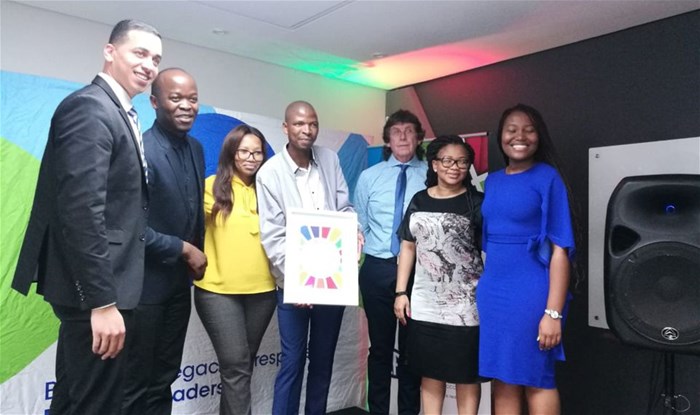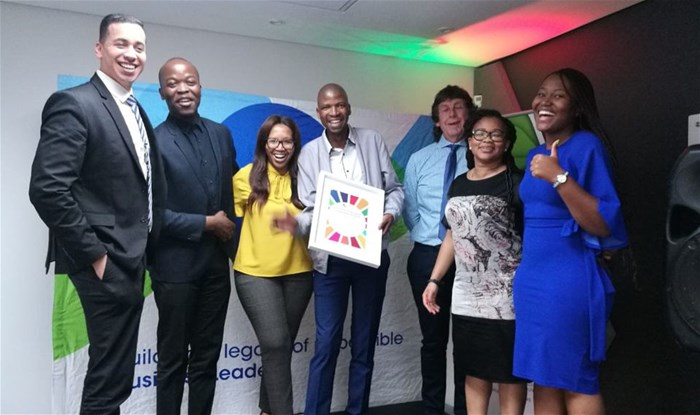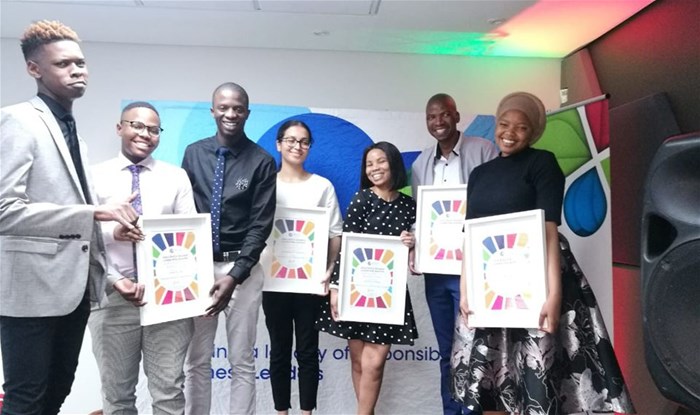
Top stories

Energy & Mining#MiningIndaba: How GenAI is reinventing mine maintenance in South Africa
Maroefah Smith 2 hours





More news












Speaking about Team3 Farm, 2019 SLS winner, Bongkinkosi explains how he came up with the project: "Most of the rural communities in the Eastern Cape have large amounts of undeveloped arable land, yet many people in these areas live in abject poverty. Without jobs, entire communities are dependent on government grants for their survival. And since they lack formal education, residents of these communities find themselves unemployable, which perpetuates hunger and makes them vulnerable to diseases as lack of proper nutrition remains a problem in these areas. It’s these problems that I sought to address through Team3 Farm."
"Team3 exists to bridge this gap between poverty, hunger and conflict by utilising dormant land to produce vegetables and use this produce to earn an income to uplift the community’s standard of living," explains Bonginkosi.
But why is a student from UJ interested in solving the Eastern Cape’s problems?
“Born and raised in the Ngcobo area, I grew up poverty-stricken and hungry as my mom, a single parent, struggled to make ends meet. It is a place where dreams die before they are conceived. In fact, I am the only boy of my age who passed matric and proceeded to go to university in a village of more than 50 boys.”

Yet despite these hardships, Bonginkosi believed that the key out of the shackles of poverty was education and decent work. And so he pursued both from a young age.
He started the farming activities, which would later become the Team3 Farm project, on a very small scale while still in Grade 11. He also worked hard at school to earn the chance to go to university.
Today, Bonginkosi’s Team3 Farm project has secured around 200 square metres of latent community property on which it plants vegetables (spinach, potatoes, cabbage, tomatoes, carrots, butternut and beetroot) as well as breeds chickens for their eggs and meat. It also provides employment for three community members, including his sister, with scope to grow these numbers as the concept takes off.
In so doing, Team3 Fam, gives the local rural community of Ngcobo access to cheap vegetables, eggs and chickens as well as the ability to earn income either as rentals for owners or wages for those employed in the farm’s value chain. In addition, the project also sells its fresh produce to schools, clinics and the All Saints Hospital to assist with the various feeding schemes that exist in the region.
"Our goal," says Bonginkosi, "is to ultimately use all of the available arable land in my village (around 600 hectares) to create more jobs and produce for the area. In the long-term, we hope to replicate the system throughout villages in the Eastern Cape that have similar land profiles. Once these hectares are put back into use, the communities will have something to trade. That’s how new local economies begin."

"As the world embraces purpose, ethics and sustainability as the new norm, the practical application and measurement of their intent has one North Star: the UN SDGs. Which is exactly why the world's future business leaders need to focus on sustainability before anything else as early in their careers as possible," says SAICA Project Director for University Projects and the organiser of the SLS, Teboho Moephudi. "As SAICA, we were thrilled that more than 250 students heeded this call by entering over 160 projects for consideration for this year’s SLS.
"As judges, we struggled to narrow the high calibre of entries we received to just five teams who came to Johannesburg to pitch their ideas to a panel of esteemed business leaders. However, when it came to the winner, the judge’s decision was unanimous. By focusing on more than one SDG and presenting such a well-articulated business plan, Bonginkosi showed his passion for sustainability and determination to change his community and the world for the better."
SAICA is also very proud of this year’s runners-up who presented their SDG-related solutions with a high level of foresight, research and innovation. These are:
"On behalf of the SAICA, I’d like to congratulate each of the finalists for identifying the role they can play as future business leaders of South Africa. We can’t wait to see you implement your community-based projects and help the accountancy profession work towards solutions for a better tomorrow,” adds Chantyl Mulder, SAICA Executive Director: Nation Building.